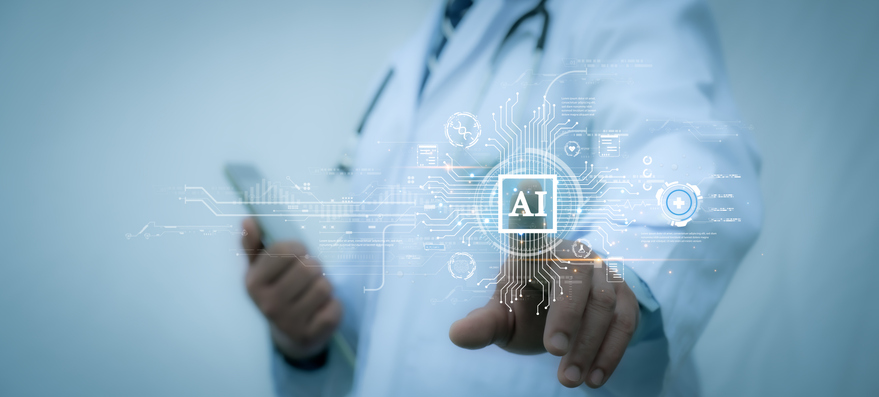January 22, 2025 • 2 min read
Navigating the Pros and Cons of AI in Healthcare
Artificial Intelligence (AI) has emerged as a transformative force in healthcare, promising to revolutionise patient care, diagnosis, treatment, and operational efficiency. However, as with any disruptive technology, the integration of AI in healthcare comes with its own set of advantages and challenges.

Below are some of the potential advantages, and some of the challenges that need to be addressed for the ethical and effective use of AI in healthcare.
Advantages:
- Enhanced Diagnostic Accuracy: AI-powered diagnostic tools can analyse vast amounts of medical data with incredible speed and accuracy, aiding healthcare professionals in making more precise diagnoses. By leveraging machine learning algorithms, AI can identify patterns and anomalies that may elude human observation, leading to earlier detection of diseases and more effective treatment plans.
- Streamlined Healthcare Operations: AI-driven solutions can automate administrative tasks, freeing up healthcare professionals to focus on patient care. This efficiency can lead to shorter wait times, reduced administrative costs, and improved overall patient satisfaction.
- Predictive Analytics: AI algorithms can forecast healthcare trends, identify high-risk patients, and predict disease outbreaks, enabling healthcare providers to allocate resources more effectively and intervene proactively to prevent adverse health outcomes. By leveraging predictive analytics, healthcare organisations can optimise resource allocation, reduce hospital re-admissions, and improve population health management.
Challenges:
- Privacy and Security Concerns: The widespread adoption of AI in healthcare raises significant privacy and security concerns regarding the collection, storage, and sharing of sensitive patient data. Ensuring compliance with data protection regulations is essential to safeguard patient confidentiality and prevent privacy breaches.
- Bias and Fairness Issues: AI algorithms are only as unbiased as the data they are trained on, and without careful oversight, they can perpetuate existing biases and disparities in healthcare. Biased algorithms may lead to differential treatment based on race, gender, or socioeconomic status, exacerbating existing healthcare inequalities and undermining trust in AI-driven healthcare systems. This is all too common in healthcare outside of the digital space, so to overcome this barrier AI solutions need to be trained and tested with the involvement of real health professionals, who are experienced and well educated on such biases; to prevent bias and ensure fairness.
- Integration Challenges: Integrating AI into existing healthcare systems and workflows can be complex and resource intensive.
As the world is moving forward with AI, we must recognise that it holds immense promise for improving patient outcomes, enhancing operational efficiency, and driving innovation. However, realising the full potential of AI in healthcare requires addressing critical challenges. By navigating these challenges thoughtfully and ethically, healthcare organisations can harness the transformative power of AI to advance the delivery of patient-centred care and improve the health and well-being of individuals and communities.
perci is a healthcare AI tool that summarises phone calls and consultations into accurate clinical notes. Designed specifically for health professionals, perci reduces administrative workload and is safe and secure to use.
Click here to find out more, or contact us for a demo.
